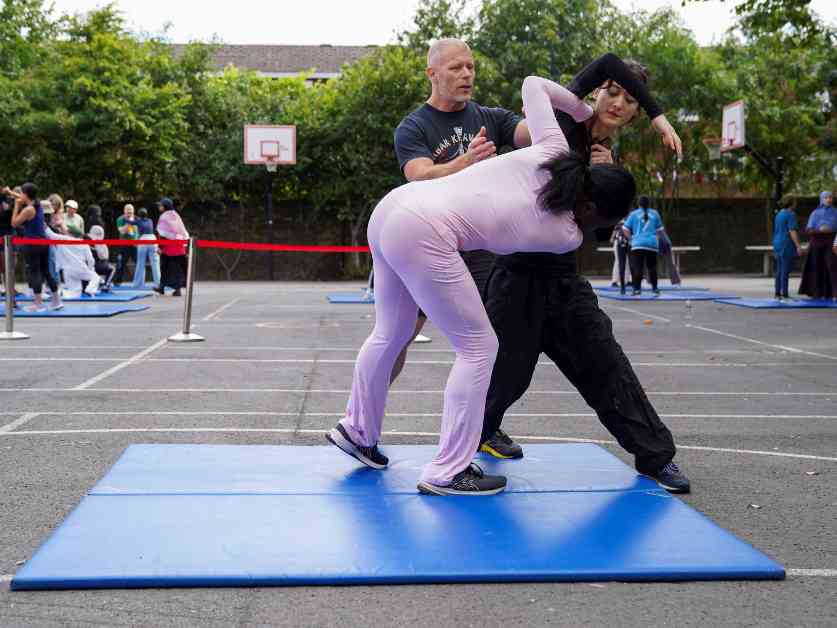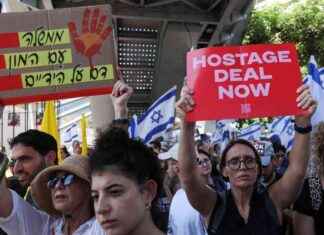Maya Hassan, a 28-year-old martial arts expert, organized a self-defence class in London for about 30 women, mostly Muslims and from ethnic minorities. The class was a response to recent riots that targeted mosques, asylum seeker hotels, and the police, leading to violent attacks on these communities. Hassan’s goal was to empower women of color to deal with abuse, build connections, and boost their confidence in the face of such unrest.
The martial arts instructor, Stewart McGill, noticed an increase in the number of women signing up for classes since the riots began. He taught them self-defence tactics like kicks and how to use impromptu weapons such as belts. One participant, Elza Annan, expressed feeling more confident and prepared, especially given the recent rise in far-right violence targeting people of color.
The riots, fueled by false information online, have disproportionately affected migrants, Muslims, and Asian individuals, raising concerns about Islamophobia and highlighting the UK’s integration challenges. Tell MAMA UK reported a surge in anti-Muslim incidents since the riots started, with over 500 calls and online reports received across the country.
Sunder Katwala from British Future emphasized the need for a cohesive strategy for integrating different communities, pointing out the visible lack of control in the asylum system as a source of fear and tension. While recent arrivals from Ukraine and Hong Kong received government support, other marginalized groups did not benefit from similar assistance.
Despite the unrest, thousands of anti-racism protesters have come together to protect vulnerable targets like immigration advice centers, mosques, and asylum seeker accommodations. This collective action has helped quell the violence and provide a sense of security for affected communities.
In response to the ongoing challenges, groups like the Three Hijabis have organized online conferences to address the psychological impact of Islamophobic violence on Muslim women. These initiatives aim to provide support, guidance, and a platform for discussing safety concerns and strategies for self-protection.
Prime Minister Keir Starmer has condemned the rioters as “far-right thugs” and implemented extra measures to safeguard the Muslim community. Nearly 800 individuals have been arrested in connection with the unrest, with some facing swift legal action and imprisonment.
As the anti-racism protests continue, individuals like Maki Omori, a 23-year-old non-binary individual, are seeking ways to prepare for potential confrontations. Omori shared their experience of feeling intimidated and the importance of feeling ready to defend themselves if faced with violence.
In the face of adversity, initiatives like self-defence classes and community support networks play a crucial role in empowering vulnerable groups, fostering resilience, and promoting a sense of solidarity against hate and discrimination. By coming together and equipping themselves with the necessary skills and resources, individuals can navigate challenging circumstances with confidence and determination. The collective efforts to address far-right violence and promote social cohesion are vital steps towards building a more inclusive and tolerant society for all.



























